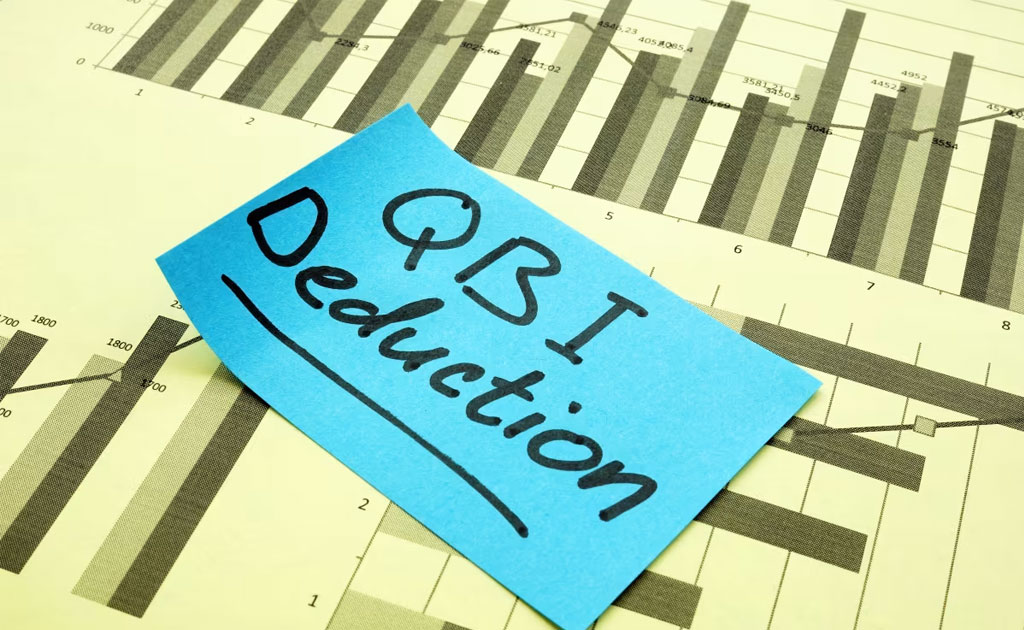If you are a self-employed or small-business owner, you may be wondering how to reduce your tax liability in 2024. One of the most beneficial tax provisions for small businesses is the qualified business income (QBI) deduction, also known as the Section 199A deduction. This deduction allows eligible taxpayers to deduct up to 20% of their QBI from their taxable income, plus an additional 20% of qualified real estate investment trust (REIT) dividends and qualified publicly traded partnership (PTP) income. In this article, we will explain what QBI is, who qualifies for it, and how to claim it.
What is QBI?
QBI is defined as the net amount of qualified items of income, gain, deduction, and loss from any qualified trade or business. This includes income from partnerships, S corporations, sole proprietorships, and certain trusts and estates. Generally, this includes the deductible part of self-employment tax, self-employed health insurance, and deductions for contributions to qualified retirement plans (e.g., SEP, SIMPLE and qualified plan deductions). QBI does not include items such as capital gains or losses, interest income not properly allocable to a trade or business, wage income, or income that is not effectively connected with the conduct of business within the United States1.
Who qualifies for QBI?
The QBI deduction is available to taxpayers who have pass-through income from a trade or business. Pass-through income is income that you report on your personal tax return instead of paying taxes at the corporate level. Entities eligible for the QBI deduction include:
- Sole proprietorships.
- Partnerships.
- S corporations.
- Limited liability companies (LLCs).
- Trusts and estates.
However, there are some limitations and exceptions that apply to the QBI deduction. For example:
- The deduction is subject to phase-out ranges based on your taxable income. In 2024, the phase-out ranges are $182,100 for single filers and $364,200 for joint filers.
- The deduction may be reduced by the patron reduction if you are a patron of an agricultural or horticultural cooperative.
- The deduction may be limited by certain types of income from partnerships or S corporations.
- The deduction may not apply if you have more than one trade or business in the same year.
How to claim QBI?
To claim the QBI deduction, you need to determine your net QBI from your qualified trade or business. You can do this by subtracting your qualified business expenses from your qualified business income. You can find your qualified business income on Form 1065, Form 1120-S, or Form 1065-EZ, depending on the type of entity you have.
You can also use Schedule C (Form 1040), Schedule E (Form 1040), Schedule F (Form 1040), Schedule SE (Form 1040), or other schedules to report your income and expenses. Once you have your net QBI, you can apply the phase-out ranges and the patron reduction to see if you are eligible for the deduction. If you are, you can claim it on Schedule C (Form 1040), Schedule E (Form 1040), Schedule F (Form 1040), Schedule SE (Form 1040), or other schedules, depending on the type of entity you have. You can also use Form 1065, Form 1120-S, or Form 1065-EZ to report your income and expenses.
Conclusion
The qualified business income deduction is a valuable tax benefit for small business owners who have pass-through income from a trade or business. However, it is not available to everyone and it has some limitations and exceptions. Therefore, it is important to consult a qualified tax professional who can help you determine your eligibility and claim the deduction correctly. If you are looking for a reliable and experienced tax preparation service in California, you may want to check out Robert Hall & Associates. They have been providing tax preparation services since 1971 and they offer personalized and affordable tax solutions for individuals and businesses. Contact them today to schedule a free consultation.
